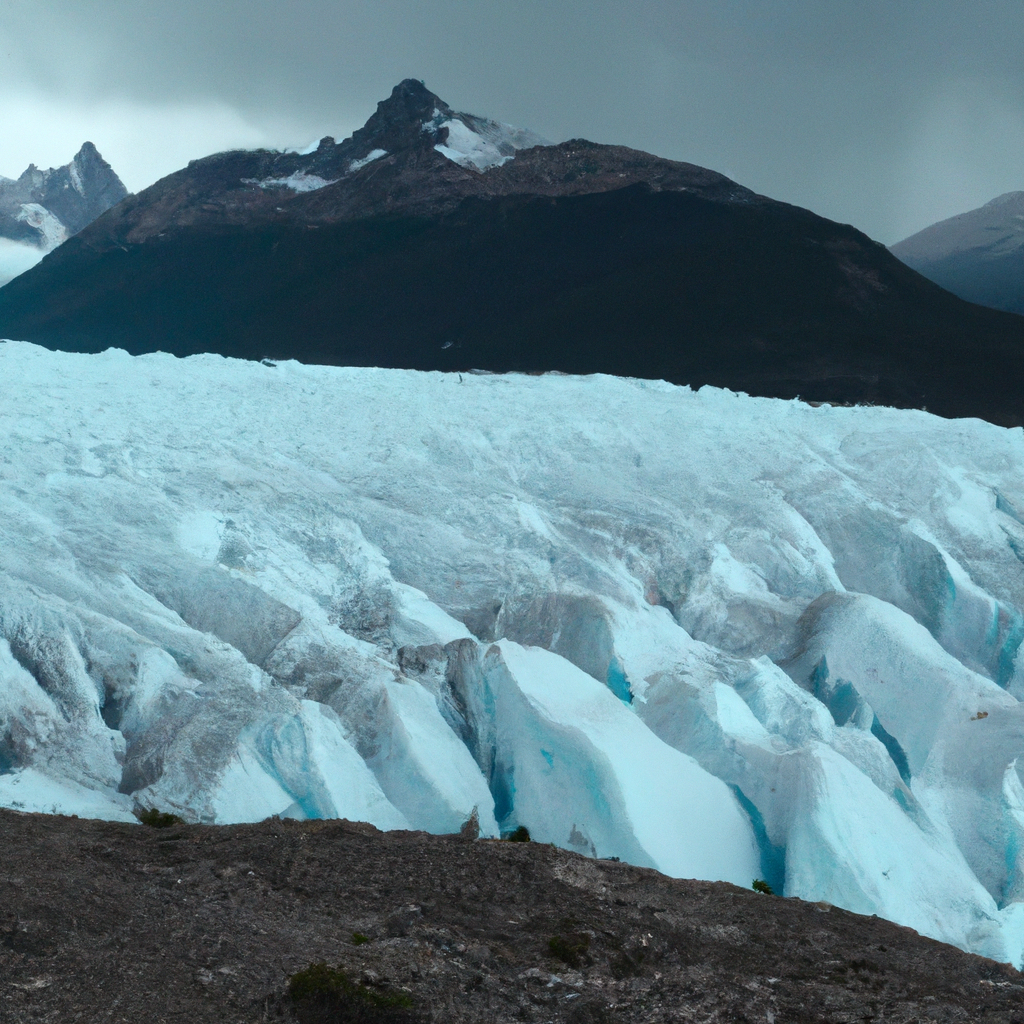Glaciers are one of the most impressive and awe-inspiring natural wonders on the planet. These massive masses of ice form over thousands of years and can be found in many parts of the world, including Antarctica, Greenland, and the Arctic. But how are glaciers formed? In this article, we will explore the formation of glaciers, the movements of glaciers, glacial erosion, glacial deposition, types of glaciers, glacier retreat, glacial landscape, and glacier facts.
Formation of Glaciers
Glaciers are formed from snow that has accumulated over many years and has been compressed into ice. This process is called compaction. The weight of each layer of snow compresses the layers below it, turning the snow into ice. The snowflakes become more tightly packed and the air between them is squeezed out. This causes the ice to become denser and harder.
Ice Caps
Ice caps are large masses of ice that cover an area of less than 50,000 square kilometers. They are usually found in the polar regions and on high mountains. Ice caps are formed by the accumulation of snow and ice over many years.
Movements of Glaciers
Glaciers move very slowly, sometimes only a few centimeters per day. They move because of the force of gravity. As the ice becomes heavier, it starts to move downhill. The movement of glaciers can cause erosion and deposition of rocks and soil.
Glacial Erosion
Glacial erosion is the process by which glaciers wear away the land beneath them. This occurs as the ice moves over the land, scraping away rocks and soil. The process of glacial erosion can create valleys, fjords, and other unique landforms.
Glacial Deposition
Glacial deposition is the process by which glaciers deposit rocks, soil, and other material as they move. This material is often left behind as the glacier retreats. The process of glacial deposition can create moraines, drumlins, and other unique landforms.
Types of Glaciers
There are two main types of glaciers: valley glaciers and ice sheets. Valley glaciers are long, narrow glaciers that form in valleys. They are typically found in mountainous regions. Ice sheets, on the other hand, are much larger and cover vast areas of land. They are typically found in polar regions.
Glacier Retreat
Glacier retreat is the process by which glaciers shrink in size over time. This can occur due to a decrease in snowfall or an increase in temperature. Glacier retreat can have a significant impact on the environment, including changes to water availability and the loss of habitat for wildlife.
Glacial Landscape
Glacial landscapes are characterized by their unique landforms. These can include valleys, fjords, moraines, drumlins, and more. Glacial landscapes are often stunningly beautiful and attract millions of visitors each year.
Glacier Facts
– Glaciers cover about 10% of the Earth’s land surface.
– The largest glacier in the world is the Lambert Glacier in Antarctica, which is over 60 miles wide.
– Glaciers store about 75% of the world’s freshwater.
– Glaciers can be blue, green, or even black, depending on the presence of algae or other impurities in the ice.
– Glaciers can move as fast as 50 meters per day.
Conclusion
Glaciers are a fascinating and important part of our planet’s ecosystem. They are formed over thousands of years and can have a significant impact on the environment. Understanding the formation of glaciers, the movements of glaciers, glacial erosion, glacial deposition, types of glaciers, glacier retreat, glacial landscape, and glacier facts can help us appreciate and protect these incredible natural wonders.







